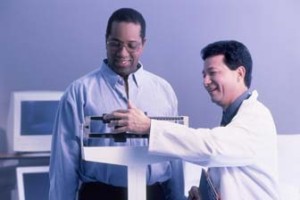Transparency is extremely important to us, so we are letting you know that we may receive a commission on some of links you click on from this page. See our disclaimer.
 As more employers add wellness to their benefits offerings, one group that sees an increasing level of demand is dietitians, according to Today's Dietitian.
As more employers add wellness to their benefits offerings, one group that sees an increasing level of demand is dietitians, according to Today's Dietitian.
The post quotes Madeleine Berg, MS, RD, CDN, who copresented a seminar on worksite wellness last year at the Academy of Nutrition and Dietetics' Food & Nutrition Conference & Expo® (FNCE®): “RDNs are the face of worksite wellness. It's our job to educate, engage, empower, inspire, and motivate employees to make health changes.”
The post states: “According to the US Department of Labor, about one-half of all US employers, small and large, offer wellness initiatives. That equates to plenty of potential opportunity—and need—for nutrition expertise.”
“Today, dietitians are performing health screenings and assessments, running weight-loss challenges, leading nutrition education efforts, such as lunch ‘n learn seminars during employees' lunch breaks, cooking classes, and a host of other educational and awareness initiatives, taking a range of worksite wellness activities to a whole new level.”
The key role a dietitian can play was highlighted in a study published in the Journal of the American Dietetic Association: “An integral role of the dietitian: Implications of the Diabetes Prevention Program.” The paper looks at the how effective dietitians can be in Diabetes Prevention Programs (DPP) as lifestyle coaches, case managers, and in central management.
The authors wrote: “The DPP provided conclisive evidence that diabetes can be delayed or prevented with lifestyle modification. Thus, the DPP findings confirmed the results of the smaller diabetes prevention trials from China and Finland conducted earlier. Moreover, lifestyle modification achieved a greater reduction in the risk of diabetes than medication. Dietitians played a key role in the overwhelmingly positive DPP finding that lifestyle intervention is more effective than medication in the prevention of type 2 diabetes.”




0 Comments